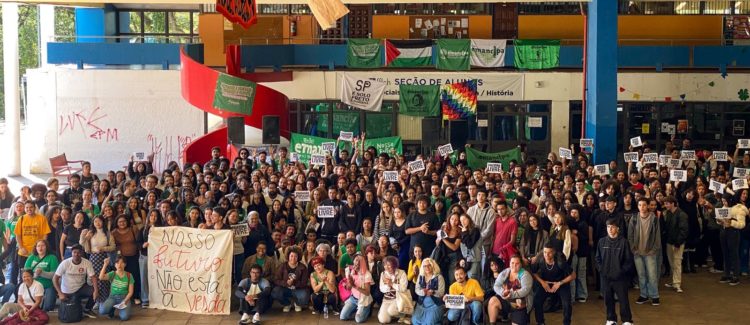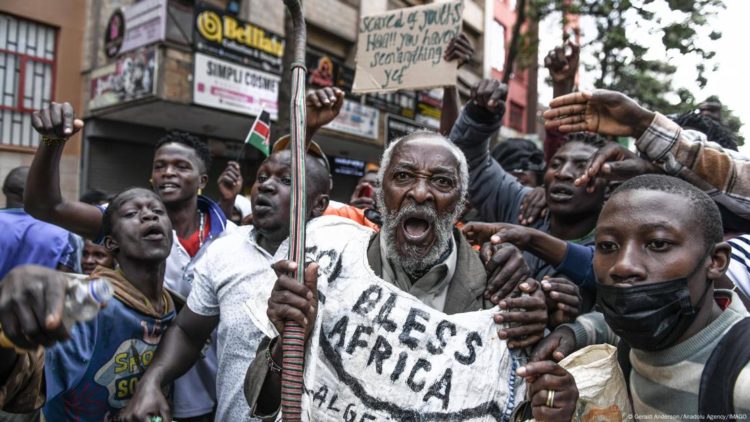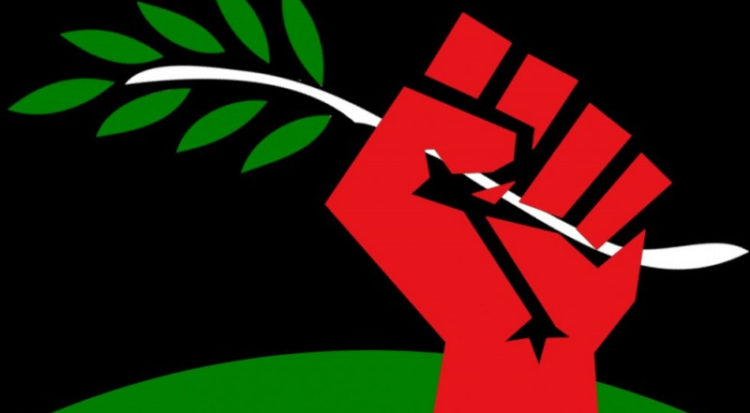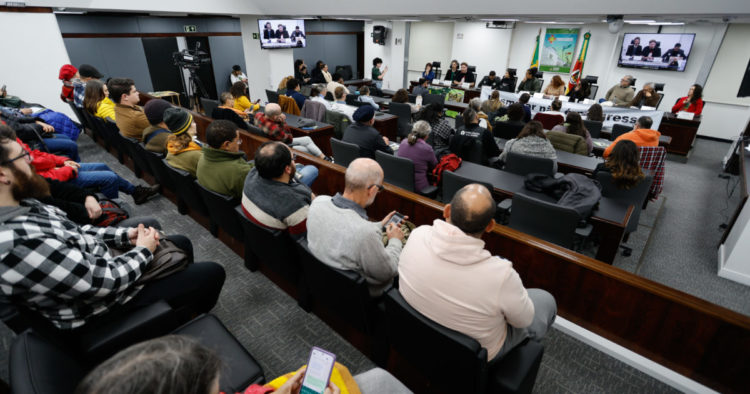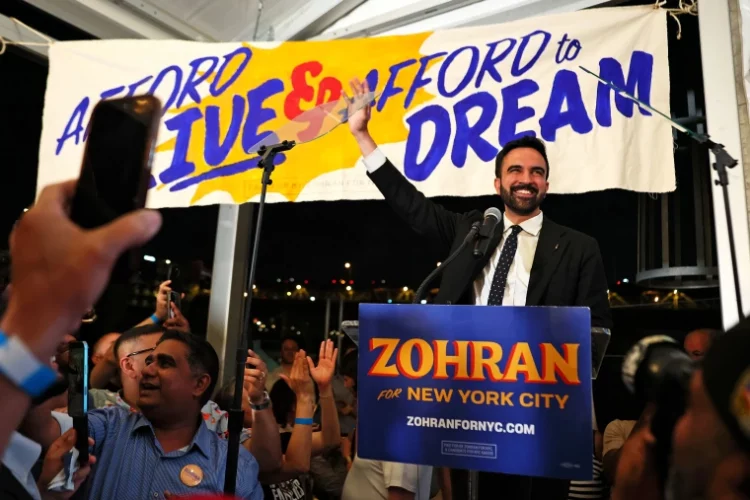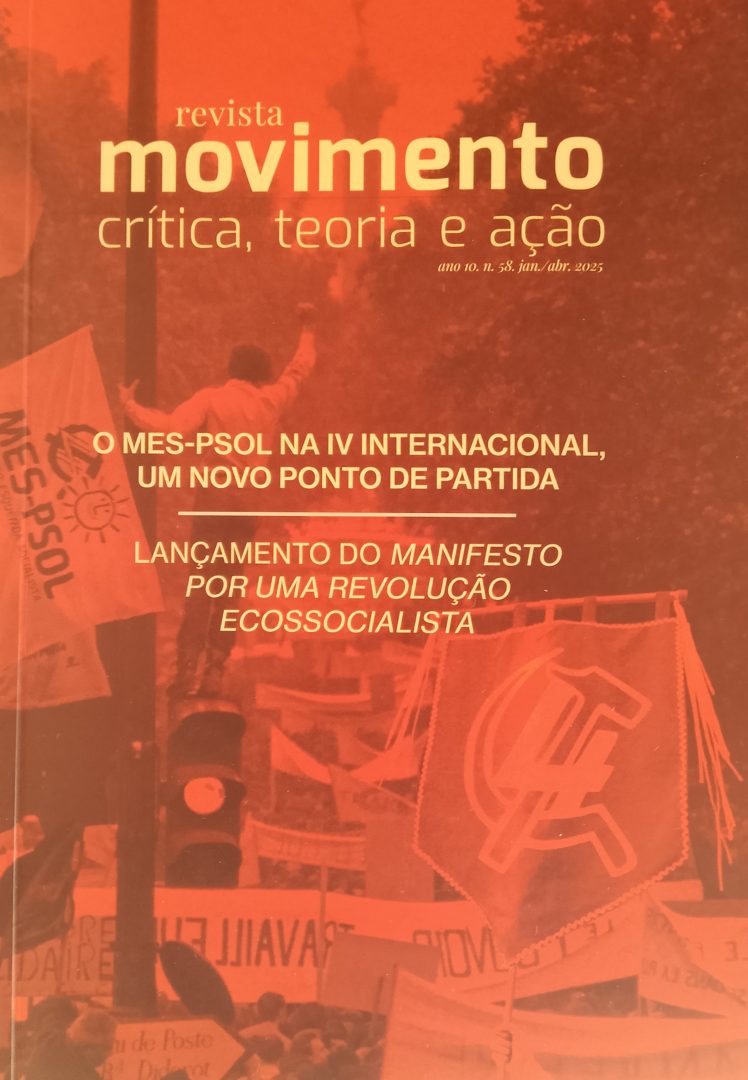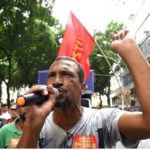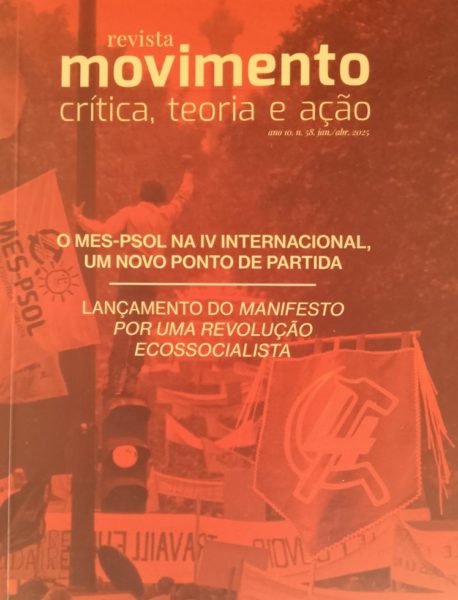NUPES: What is this unity of the French left?
After coming within 1.2% of the second round of the presidential election, Mélenchon turned defeat into a dynamic of unity on the left. And now it is even he who is challenging the president-elect in the upcoming legislative elections. But unity is not a slogan and its paths are complex.
Next stop: Popular Front? It seemed unlikely not too long ago. But the metro station of this name was indeed the destination of much of the French left last Saturday because of the rally introducing the New Ecological and Social Popular Union in Aubervilliers, in what was presented as both a “historic moment” and an “act of collective resistance to an era of social, ecological, democratic mistreatment.”
Last April 10, the mood on the left was quite different, and one number seemed to impose itself crudely: 1.2%. This had been the vote difference between Jean-Luc Mélenchon and Marine Le Pen in the first round of the French presidential election. With Macron’s ultra-liberal extreme-center hegemonizing the mainstream political field and the far-right candidate posing as the pseudo-alternative that serves to continue serving the interests of the most powerful, this number could have been the bucket of cold water that would mark the failure of the left on the big stages of French politics at the new juncture. Neither victories in the youth vote nor promising results in popular towns and neighborhoods proved capable of changing this scenario.
But the candidate of France Insubmisse turned defeat into a dynamic of unity on the left. And now he is the very one who is challenging the president-elect in the upcoming general elections.
Beyond the rhetorical capacity of Mélenchon, who immediately presented himself as “candidate for prime minister” and launched the electoral coalition’s challenge, several reasons determined the success of this rapprochement between France Insubmisse, the PS, the PC, and the Greens. The first of which was obviously the survival instinct and the possibility of falling into irrelevance for some of these historic parties following the presidential result that concentrated the votes of the left on Mélenchon. The logic of the presidential election does not translate directly into the legislative election, but it would be difficult for any of the other political forces to recover significantly. And once the challenge of unity has been issued, those who remain outside could pay the price of this “division” that would weaken the possibility of an alternative to liberalism and the extreme right.
The second reason, closely linked to this one, can be found in the French political system itself. The parliament is elected in a uninominal majority system with two rounds of voting. This translates concretely into a first round in which, to be elected, a candidate must have an absolute majority and at least a quarter of the votes of the registered voters. If this is not the case, the candidates who have obtained at least 12.5% of the votes of all those registered, or, if there are not at least two such candidates, the two who have obtained the most votes in the first round, go through to the second round. Such a system tends to narrow the ability of smaller parties to elect, taking away those that have their regional strongholds, and the election date was fast approaching.
The third reason combines with the previous two and is obviously the need for the left to assert itself vis-à-vis Macron, who from within social-liberalism tore apart the PS, but especially vis-à-vis the extreme right. Marine Le Pen rose again electorally, climbed another step in the normalization of her political project, and made a stand with many of those dissatisfied with mainstream politics. Zemmour stayed on the sidelines but gained even more media space, claiming to assert the gallons of the true extreme right against the “domesticated” one. And there is a marked swing to the ultraconservative right of the French political spectrum as a whole, of which the speech of Valérie Pécresse’s candidacy of the “traditional right” was a sign. The rise of the extreme right, as elsewhere, has dragged right and “center” into its themes. Thus, left unity, beyond being a particular survival strategy for each group, would seem to be the best way for the left to stay afloat and be on par with the demands of the anti-fascist state of emergency.
A fourth reason could be sought in history that demonstrates the possibility of unitary leftist processes coming to government. It has happened several times with different results and balances. From the Popular Front of 1936, celebrated for having introduced paid vacations, the 40-hour work week, and collective labor contracts. Up to the Left Unions of the 1970s and that resulted, between 1981 and 1984, in the first period of François Mitterrand’s presidency, before the “turning point of rigor” marked the end of the unitary experience, in the application of a program of nationalizations, a wealth tax, increase of the minimum wage, retirement at age 60, 39 hours of work per week, abolition of the death penalty, among other measures. Already between 1997 and 2002, the “plural left” government of Prime Minister Lionel Jospin will bring together the Greens, the PCF, the Radical Left Movement and the Citizens’ Movement, and will reduce working hours to 35 hours (giving in exchange in an “annualization of working time), generalize health coverage and introduce the civil pact between people of the same sex (not enshrining the right to marry). At the same time, on the other hand, it will initiate a series of privatizations, and Claude Allègre’s education reform will attack teachers’ rights. There was thus, despite the critical assessments made about these experiences, also a tradition and a mythology of “left-wing governments” conducive to new convergences. Especially the imagery created around the Popular Front, which remains powerful and mobilizing.
Who Joins
Unity is not made only of history, of good will to defeat shared political adversaries, or of slogans. Nor do parties necessarily add up as plots. Getting to this point required leaving behind the harsh criticisms of the presidentials, or swallowing others like the one that Mélenchon had appropriated the historic idea of Popular Union as his own for electoral purposes. It was necessary to negotiate in detail eligible and ineligible seats and to find programmatic bridges. This was done with a speed that may have been surprising, but that still gives the impression that it was above all a bracketing of major differences.
The substantial difference in this process was that, for the first time, the hegemonic force was not the Socialist Party but a party to its left. The programmatic discussion thus began with the program that Mélenchon had already presented to the voters, “The Common Future” and it was a matter, on the part of the weaker parties, of negotiating less “radical” proposals with the stronger electoral partner.
The nuclear exit, contested by the French Communist Party, “disobedience” to European Union rules, which PS and Greens wanted to mitigate, and the repeal of Hollande’s presidency’s labor laws were among the main obstacles. Agreements signed between the parties, the different views on these issues continue. The exit from nuclear power is part of the agreement signed between Greens and France Insubmisse but is not mentioned in the agreement with the PCF. The Communists will have been left with autonomy to defend their position but will be in the minority in this field. The reference to the disobedience to the rules of the European Union was filed away so that the Greens and the Socialist Party (PS) would drag it out, but the position towards Brussels still separates the coalition partners, even though FI has explicitly stated that the alliance is not opposed to the euro and to belonging to the European Union. The Greens won the symbolic victory of changing the alliance’s name to one with less historical baggage: New Popular Ecological and Social Union (NUPES). And the PS ended up endorsing the opposition to the labor laws of its previous government, but the agreement with FI is silent on nationalizations, tax increases for the richest, among other of the social measures detailed in the program of the “insubmissives.”
The PS’s programmatic setbacks may not seem that significant, and its electoral prospects may have increased considerably. But the unity process has caused significant divisions in this party, and several critical voices, including former presidential candidate and Paris Mayor Anne Hidalgo and former President François Hollande, have clearly expressed their opposition. They complain of obliteration of their party’s historic project and of caving in to the “far left,” and several go along with the stigmatization of Mélenchon. Despite the fact that he belonged to the French PS for 32 years, that he was a senator and minister in its service, and that his electoral program is far from being much more radical than the famous “common program” that brought Mitterrand to the presidency, despite all the dangers of comparing proposals from such different eras.
Who is left out
If the PS got in despite not even being invited at first, on the other hand the New Anti-capitalist Party was left out despite having integrated the initial range of groups to whom the proposal was presented.
No unity is absolutely elastic and the entry into the alliance of a PS that has not openly cut with social-liberalism was always going to be problematic for anti-capitalists, who recall the presidential experience of François Hollande between 2012 and 2017 with his strong attacks on workers’ and pensioners’ rights.
But the issue for the NPA was neither one of principle nor stuck in the past. The party declared itself during the negotiation process ready to defend the program presented by the IF as a first step but criticized afterwards that, as a result of the negotiations with the PS, the latter had retreated on the wording on retirement at 60, which became more eventual than binding, on the minimum wage increase that was no longer “immediate,” and the reformulations on treaty disobedience.
On the other hand, it felt disregarded. The starting point of the negotiations was that the proportionality of the results in the presidential elections would be translated into the number of candidates in the legislative elections. The PS managed to go far beyond that but the NPA was offered three times fewer seats than it would have been proportionally entitled to. In addition, it would not be entitled to any eligible candidacy, and would be left with “leftovers” in constituencies where it does not have a great militant tradition.
The conclusion reached by former presidential candidate Philippe Poutou was that “his presence was not really wanted” and the proposal presented was not serious. The party then decided not to join NUPES. At the same time, it did not place itself totally outside the unitary dynamic. It calls for voting and actively supports except when “faced with social-liberal candidacies,” a situation in which it will seek alternatives.
Who loses or leaves
With many candidates already on the field, debts already incurred, and political bets already made, this negotiation has also dropped some deputies and other party figures. A fact that adds to the ideological uneasiness of part of the French PS and that will cause the left-wing unity to have its dissident candidacies on the side of those who have not given up the projects started. Several alternative candidates to NUPES will unsurprisingly be from the PS but there are also figures like Azzedine Taïbi, mayor of Stains elected by the PCF and who had joined the FI candidacy, or Michèle Picard, mayor also elected by the PCF.
The rapid process of negotiation through the party directories also had the consequence of creating unease in the popular associative circles that supported Mélenchon in the first round. Here too there are candidacies that will stand and others that will reluctantly drop out. Mediapart has identified some of the “losers” of the agreements in these movements, such as local activist Sanaa Saitouli who saw her candidacy officially rejected by a deputy who had been elected in Macron’s lists but who changed camps, the director and writer Mehdi Lallaoui, or Aly Diouara, of the Seine-Saint-Denis au cœur collective. The latter complains that the NUPES “turned its back on the popular neighborhoods” after they were instrumental in Mélenchon winning third place. The neighborhood activist network On s’en Mêle is following the same line. Deception and criticism of the instrumentalization of their struggles are the other side of the Aubervilliers party.
On the union side there were also some disappointments. For example Xavier Mathieu, who had stood out in the struggle against the relocation of the Continental factory in Clairoix and was a member of the People’s Union parliament, cut ties with the movement because of the agreement with the PS and because the PS was neither respected nor respected in the negotiations.
This does not mean, however, that social movements are not part of NUPES and that there are no symbolic candidacies there. Rachel Kéké, one of the hotel maids who stood up to the multinational IBIS group, is one of them. On s’en Mêle welcomes her but points out that she will be a candidate in a constituency in which she has little chance of being elected. Aurélie Trouvé, former spokesperson for Attac, on the other hand, will have an easier time getting into parliament because she is running in a constituency in which FI had already elected.
Next stop: Popular Front?
Such divergences and dissensions do not make major dents for NUPES now that it has set itself up as a contender for government. Its immediate future will be more closely tied to the verdict of the polls. If the difficult challenge of victory comes to pass, the tensions in the alliance will be marked by how far the different forces will be willing to go in “disobedience” to European institutions and agreements, and by the degree of insubordination to the rulers of the economic and political system that the “insubmissives” wish to print. If the government is not reached, the most likely outcome will be a return to routines and different agendas in each of the parliamentary groups until new elections dictate other relationships of forces. Unless new unitary processes are found to combat institutionalization, forms of meeting at the base that go beyond party equations and joint social mobilizations.

